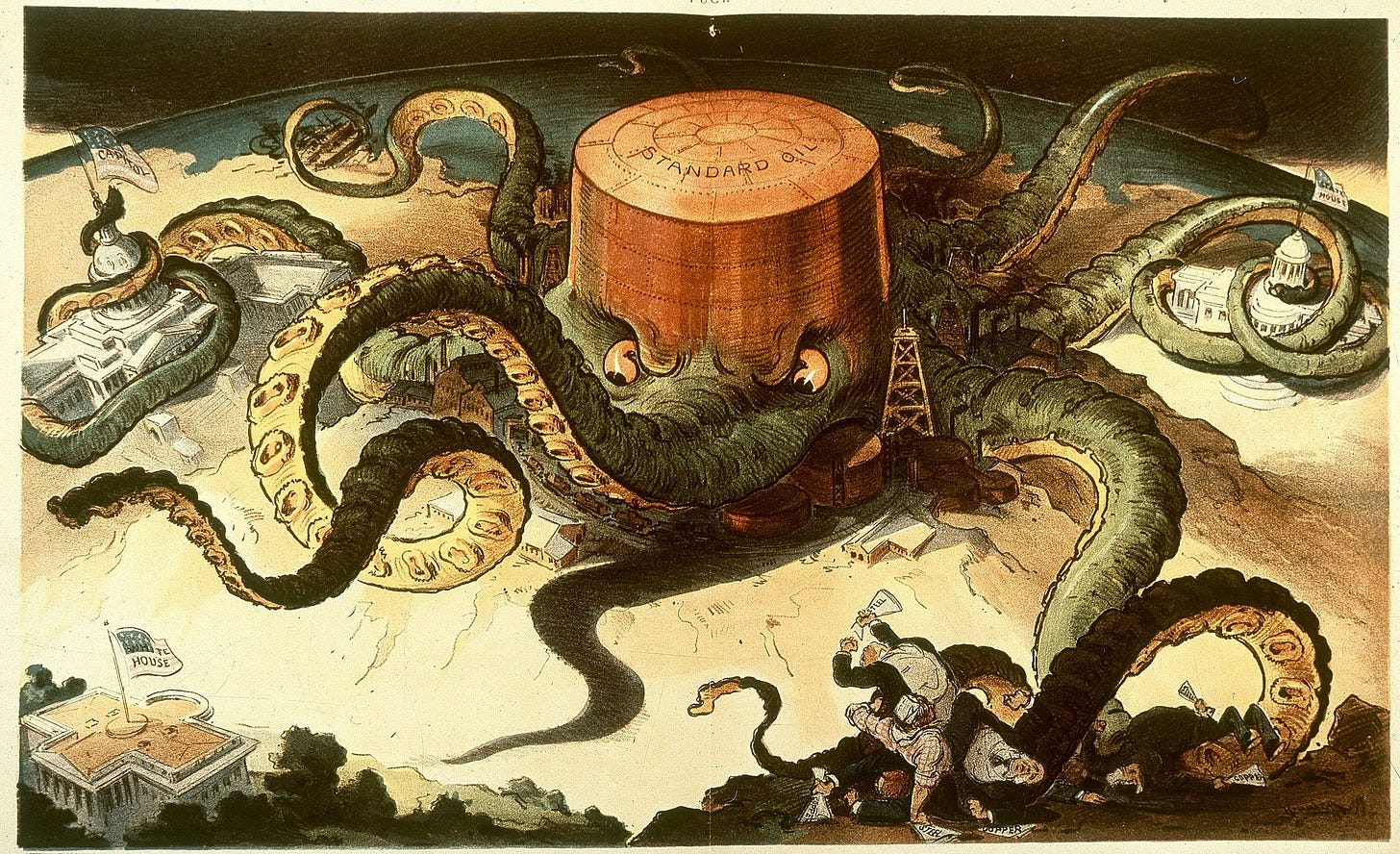The Incorporation of America: Culture and Society in the Gilded Age
Alan Trachtenberg, 1982
I’ve been hesitating to post about books that I only found partly useful in my research or field reading. But in my reading and note-making series on Lifelong Learners I stressed the point that we often get value out of books that we don’t particularly see as teaching us all that much. This particular volume is a cultural history that I found consisted of about equal parts polemic and accessible undergraduate summary of the Gilded Age. Trachtenberg seemed to be interested in some of the same questions about the ways we got to the present and the cultural changes that were influenced by the growth of corporate capitalism. He began with Charles Francis Adams Jr.’s observation that “We have no word to express government by monied corporations.” His claim was that the “deepest changes” and the “deepest resistances” to “these decades of swift and thorough industrialization and urbanization lay at the level of culture, difficult for contemporaries to recognize, and baffling for historians.” The book was organized thematically, as a “dialectic between mind and world, culture and society.” Like other “cultural” books on my reading list (such as The Country and the City, Virgin Land, or The Machine in the Garden), Trachtenberg’s account left me wondering exactly who he was talking about. This was much less useful to me than I had hoped, but reading the book wasn’t a waste. Along the way he mentioned a wide variety of titles that probably represent some of the best windows into the contemporary culture. I found myself wanting to know just how popular they were. Who read these books and what other books were they reading at the same time (or instead of these)?
The texts I marked to check out included Horatio Alger, Ragged Dick (1867), Ralph Waldo Emerson, “The American Scholar” (1867); Mark Twain, Roughing It (1871); William Gilpin, The Mission of the North American People (1873); Henry George, Progress and Poverty (1883); George Beard, American Nervousness (1884); Edward Bellamy, Looking Backward (1888); Theodore Roosevelt, The Winning of the West (1889); Herman Melville, Billy Budd (1891); Frederick Jackson Turner, “The Significance of the Frontier” (1893); Walter A. Wyckoff, The Workers: An Experiment in Reality: The West (1899); Adna F. Weber, The Growth of Cities in the Nineteenth Century (1899); Owen Wister, The Virginian (1902); Frederick W. Taylor, Principles of Scientific Management (1911).
This list also inspired me to find a list of American bestsellers, by year, for the entire nineteenth century -- if such a thing exists. I found several sources for this, and I’ll report on them soon. I was also reminded to look again at the Arts and Crafts movement, as a cultural response to this modernity Trachtenberg discusses, and an effort to move back toward an older (or forward toward a new), simpler agrarian lifestyle. I should probably look at Laura Lovett again sometime soon.





Henry George, Progress and Poverty (1883) would fit in nicely with the free-thinkers category of your readings. The Smart Talk podcast from The Henry George School of Social Science is on my regular playlists. https://www.hgsss.org